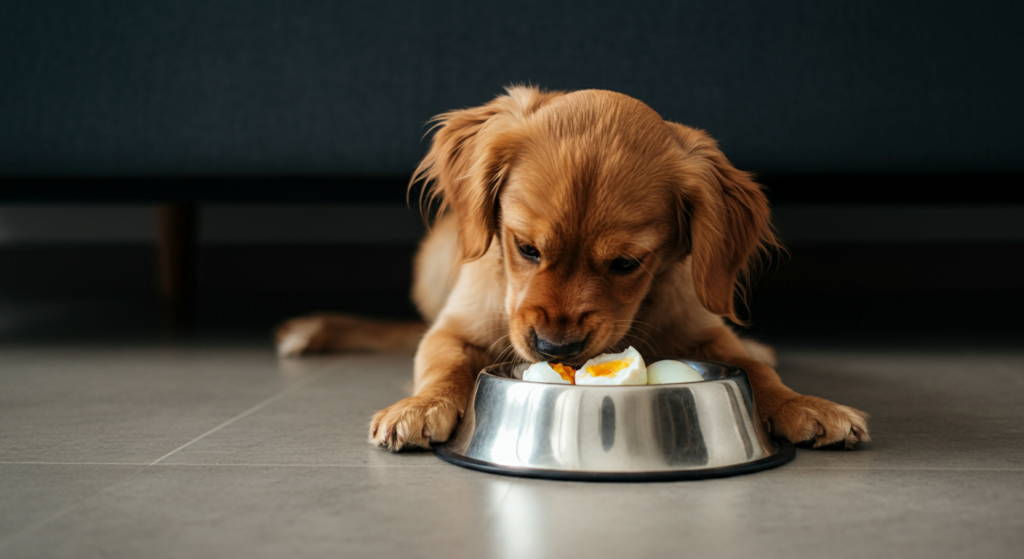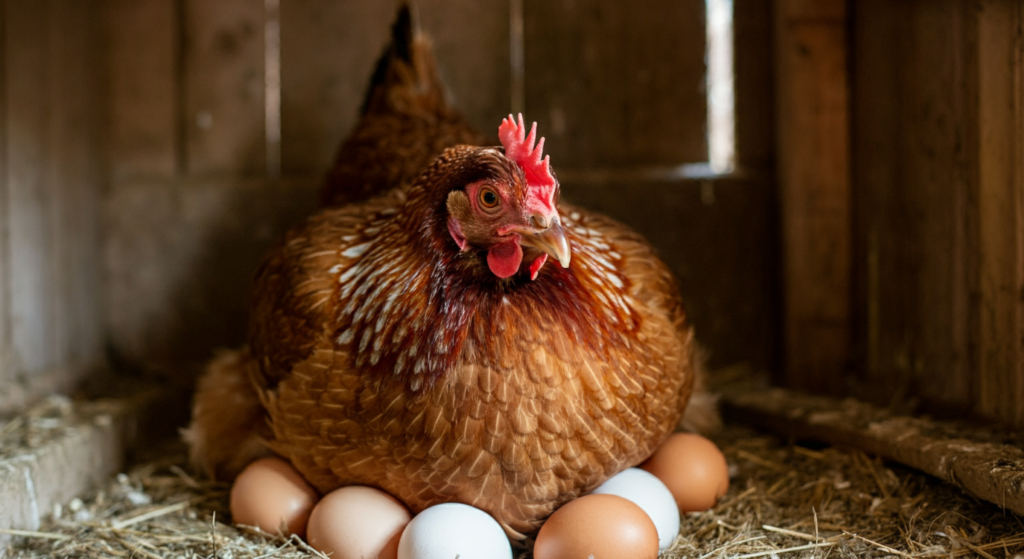Can dogs eat Eggs?
Table of Contents
- Eggs and Dogs: A Healthy Treat or a Risky Snack?
- FAQ: Eggs and Dogs
- 1. Are cooked eggs okay for dogs?
- 2. Can I give my dog an egg a day?
- 3. Are plain scrambled eggs good for dogs?
- 4. Are hard-boiled eggs good for dogs?
- 5. Can dogs eat eggs UK?
- 6. Can dogs eat eggs raw?
- 7. How many eggs can a dog eat in a week?
- 8. Can dogs eat egg shells?
- 9. How many boiled eggs can a dog eat in a day?
- 10. Can dogs eat eggs raw or cooked?
- 11. Can dogs eat boiled eggs?
- 12. At what age can puppies eat eggs?
Eggs and Dogs: A Healthy Treat or a Risky Snack?
As responsible dog owners, we’re always mindful of what’s safe for our furry companions to eat. With so many human foods posing potential risks to dogs, it’s natural to question the safety of common staples in our diet. Eggs, a versatile ingredient enjoyed worldwide, often raise the question: “Are eggs safe for dogs?” While they’re packed with nutrients for humans, their suitability for dogs isn’t always straightforward. Knowing the facts can help you make informed and safe choices about sharing this popular food with your pet.
Yes, dogs can eat eggs, and in fact, they can be a nutritious treat when prepared correctly. Eggs are packed with protein, vitamins, and healthy fats, making them a beneficial addition to your dog’s diet. However, certain precautions, like cooking the eggs and serving them in moderation, are important to ensure they’re safe and healthy for your dog. Let’s dive deeper to ensure you’re making the best choice for your dog’s health.
What Are Eggs?
Eggs are nutrient-dense food items laid by birds, with chicken eggs being the most commonly consumed by humans and pets alike. They’re rich in protein, healthy fats, and essential vitamins and minerals. The egg is divided into three parts: the yolk, white, and shell, each offering unique nutritional benefits.
In human cuisine, eggs are prepared in various ways—boiled, scrambled, fried, or raw. While humans can enjoy eggs in many forms, dogs benefit most from cooked eggs, as this eliminates potential risks associated with raw consumption, such as bacterial contamination.
Can Dogs Eat Eggs?
The simple answer is yes, dogs can eat eggs, and they often enjoy them! Eggs are highly digestible and provide a range of nutrients that support your dog’s overall health. However, it’s crucial to prepare them correctly and offer them in moderation.
Can dogs eat raw eggs? It’s best to avoid raw eggs due to the risk of salmonella and biotin deficiency. Cooked eggs are safer and more beneficial for your dog.

What Are the Benefits of Eggs for Dogs?
Eggs, when prepared properly and offered in moderation, can provide numerous benefits to your dog. Here are some key advantages of incorporating eggs into your dog’s diet:
- High-Quality Protein
Eggs are an excellent source of high-quality protein, which supports muscle development, repair, and overall growth in dogs. Protein is a vital component of your dog’s diet, and eggs are a natural and affordable way to meet this need. - Rich in Vitamins and Minerals
Eggs contain several essential nutrients, including:
- Vitamin A: Promotes healthy skin and vision.
- Riboflavin: Supports energy metabolism.
- Vitamin B12: Crucial for nervous system function and red blood cell production.
- Selenium: Acts as an antioxidant, supporting overall immune health.
- Healthy Fats
The yolk in eggs provides healthy fats that can contribute to a shiny coat and overall vitality. These fats also play a role in maintaining brain health and energy levels. - Digestive Support
Eggs are easy to digest and can help settle an upset stomach in some dogs. They’re often used as part of a bland diet for dogs recovering from digestive issues. - Calcium from Eggshells
Crushed eggshells can be a source of calcium, which is essential for strong bones and teeth. If offering eggshells, ensure they’re finely ground to avoid choking hazards or digestive discomfort.
Are Eggs Bad for Dogs?
Eggs are not inherently bad for dogs, but certain precautions must be taken:
- Avoid Raw Eggs
Raw eggs pose a risk of bacterial contamination, such as salmonella, which can cause gastrointestinal upset. Additionally, raw egg whites contain avidin, a protein that can interfere with biotin absorption if consumed in large quantities over time. - Moderation is Key
While eggs are nutritious, they’re calorie-dense and should be offered in moderation to prevent weight gain or dietary imbalances. - Potential Allergies
Some dogs may be allergic to eggs, leading to symptoms such as itching, swelling, or gastrointestinal upset. Introduce eggs gradually and monitor for any adverse reactions.
What Are the Dangers of Dogs Eating Eggs?
Although eggs are generally safe for dogs, certain risks must be considered:
- Overfeeding
Excessive egg consumption can lead to obesity, pancreatitis, or nutrient imbalances. Eggs should complement your dog’s regular diet, not replace it. - Seasoning and Additives
Eggs prepared with butter, oil, salt, or seasonings can be harmful to dogs. Always serve plain, cooked eggs without added ingredients. - Choking Hazards
Whole eggshells or large pieces of eggshell can pose a choking hazard. Ensure shells are finely ground if included. - Digestive Upset
Some dogs may experience diarrhoea or vomiting if they’re not accustomed to eggs. Start with small portions to gauge your dog’s tolerance.
How Many Eggs Can Dogs Eat?
Portion size depends on your dog’s size, weight, and overall health. As a general guideline:
- Small Dogs: Up to half an egg per day.
- Medium Dogs: Up to one egg per day.
- Large Dogs: Up to two eggs per day.
Consult your veterinarian for personalised advice, especially if your dog has pre-existing health conditions.
Fun Facts About Dogs and Eggs
- Dogs on farms historically enjoyed eggs as a natural treat from chicken coops.
- Some dogs love the taste of eggs, while others might be indifferent. If your dog enjoys them, eggs can be a special addition to their diet!
- Eggshells, when finely ground, have been used as a natural calcium supplement for dogs.
Conclusion
So, can dogs eat eggs? The answer is yes, with proper preparation and moderation. Cooked eggs are a safe, nutritious, and affordable treat for your dog. Avoid raw eggs, excessive seasoning, and overfeeding to ensure your furry friend stays happy and healthy. If you’ve tried giving your dog eggs, share your experience below!

FAQ: Eggs and Dogs
1. Are cooked eggs okay for dogs?
Yes, cooked eggs are safe for dogs and can be a healthy treat. Cook them plain—without added salt, butter, or oil—for the best nutritional benefits.
2. Can I give my dog an egg a day?
Yes, you can give your dog one egg a day, depending on their size and overall diet. However, eggs should be given in moderation and should not replace your dog’s balanced meals.
3. Are plain scrambled eggs good for dogs?
Yes, plain scrambled eggs are good for dogs as they are high in protein and easy to digest. Avoid adding seasoning, butter, or milk, as these can upset your dog’s stomach.
4. Are hard-boiled eggs good for dogs?
Yes, hard-boiled eggs are an excellent option for dogs. They are fully cooked and easy to prepare, making them a convenient and nutritious snack.
5. Can dogs eat eggs UK?
Yes, dogs in the UK can safely eat eggs as part of their diet, just as in other regions. Follow the same precautions—cook the eggs thoroughly and serve plain.
6. Can dogs eat eggs raw?
While some dog owners feed raw eggs, there is a risk of salmonella or biotin deficiency from raw egg whites. It’s safer to serve eggs cooked to eliminate these risks.
7. How many eggs can a dog eat in a week?
The number of eggs depends on your dog’s size and activity level. Small dogs can have 1–2 eggs per week, while larger dogs can enjoy 3–4. Always consult your vet for personalised advice.
8. Can dogs eat egg shells?
Yes, egg shells are a natural source of calcium for dogs. Crush the shells into a fine powder before serving to prevent choking and make them easier to digest.
9. How many boiled eggs can a dog eat in a day?
Small dogs can eat about half a boiled egg, while larger dogs may have one whole egg per day. Eggs should complement, not replace, their regular diet.
10. Can dogs eat eggs raw or cooked?
Cooked eggs are the safer option for dogs. While raw eggs are sometimes given, they pose risks such as salmonella or biotin deficiency, so cooking is recommended.
11. Can dogs eat boiled eggs?
Yes, boiled eggs are a great source of protein and nutrients for dogs. Just ensure they are plain and served without seasoning.
12. At what age can puppies eat eggs?
Puppies can start eating eggs once they are weaned and on solid food, usually around 8–10 weeks old. Start with small portions of cooked eggs to avoid upsetting their sensitive stomachs.
